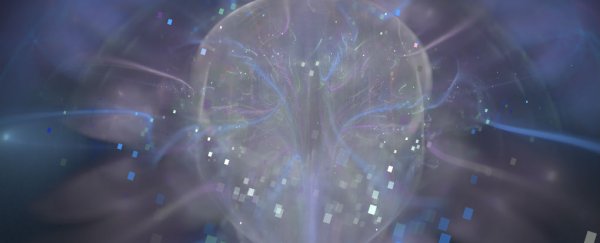New research looking at the relationship between human decision-making and mathematics has turned up a surprising finding: our most irrational choices might be explained by the theories of quantum mechanics. The idea is that the choices we face are all co-existing at the same time, until we make a decision - at that point all other possibilities disappear from our minds.
"Our beliefs don't jump from state to state: instead we experience a feeling of ambiguity about all of the states simultaneously," one of the researchers, Zheng Joyce Wang from Ohio State University, told The Independent. When we're faced with a choice, she says, quantum theory enables our minds to shift between each option in a state of indecision until the exact moment that we make a decision.
The leap from sub-atomic particles (the usual domain of quantum theory) to the decisions made by the consciousness of human beings is quite a big one; however, there is evidence that the uncertainty present in quantum physics more naturally fits the uncertainty present in our minds. Some scientists have gone as far as to say our brains are actually quantum computers themselves, though Wang and her team stop short of that.
"We have accumulated so many paradoxical findings in the field of cognition, and especially in decision-making," explains Wang in a press release. "Whenever something comes up that isn't consistent with classical theories, we often label it as 'irrational'. But from the perspective of quantum cognition, some findings aren't irrational anymore. They're consistent with quantum theory - and with how people really behave."
So your rather strange decisions about what to have for dinner or what to do tomorrow aren't all that strange: they're just natural. Wang suggests that mental ambiguity, which leads to quantum cognition, can be prompted by ambivalent feelings, or a lack of a clear preference between the available options, or when we're only given limited information about each choice on offer.
"Our brain can't store everything. We don't always have clear attitudes about thing," says Wang. "But when you ask me a question, like 'What do you want for dinner?' I have to think about it and come up with or construct a clear answer right there. That's quantum cognition.
Wang's conclusions are drawn from several papers and studies: the most recent have been published in Current Directions in Psychological Science and Trends in Cognitive Sciences. One of the benefits of the new hypothesis proposed by Wang and her colleagues is that it can effectively scale up to meet questions with just a few or many different responses - from "which political party are you voting for?" to "how do you feel right now?"
Quantum cognition is a relatively new field, but it can help explain some of our most irrational behaviour - changing our opinion about items in a list depending on the order of the list, for example. If it takes as long for scientists to plumb the depths of the human brain as it has for them to get to the bottom of quantum mechanics, there are many years of discoveries and revelations still ahead of us.
